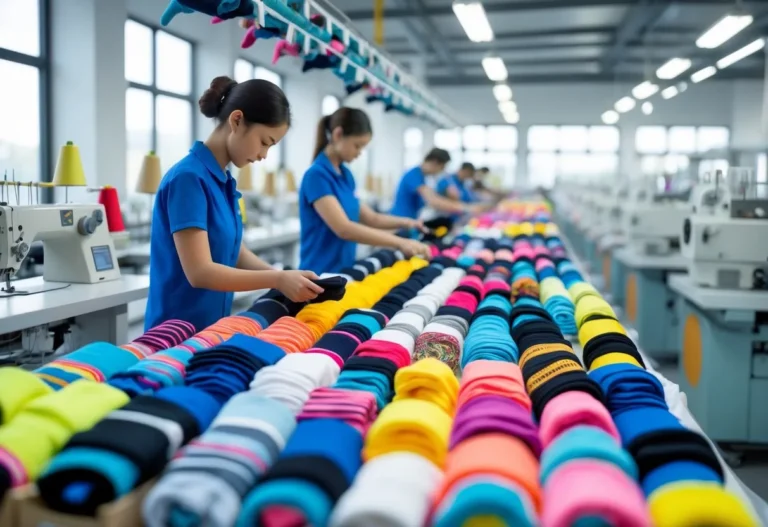Choosing the best fabric for t-shirts is important because it affects comfort, durability, and style. Different fabrics offer unique qualities that suit various needs and preferences. Understanding these options helps people pick the right material for everyday wear or special uses.
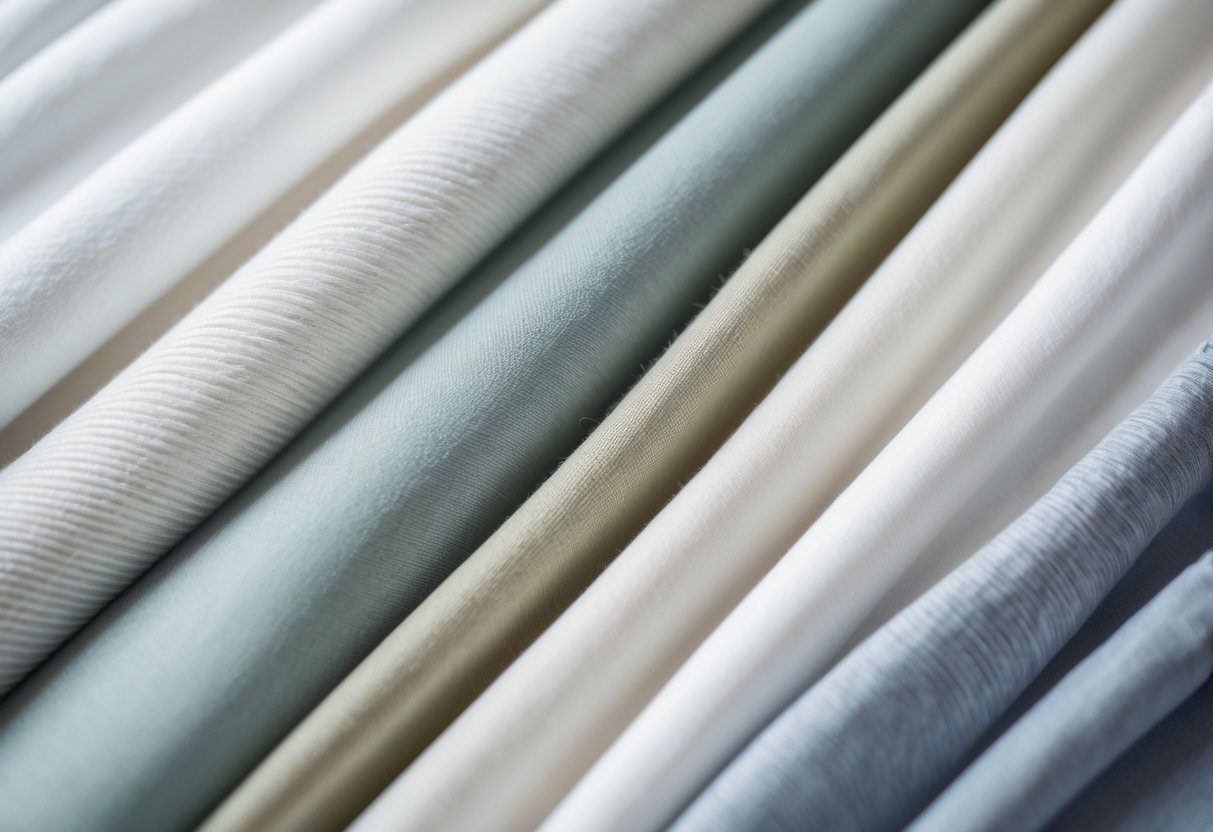
The best fabric for t-shirts depends on factors like breathability, softness, and how well it holds up after washing. Knowing these basics helps anyone make a better choice, whether buying or making t-shirts for personal use or business.
1) 100% Combed Cotton
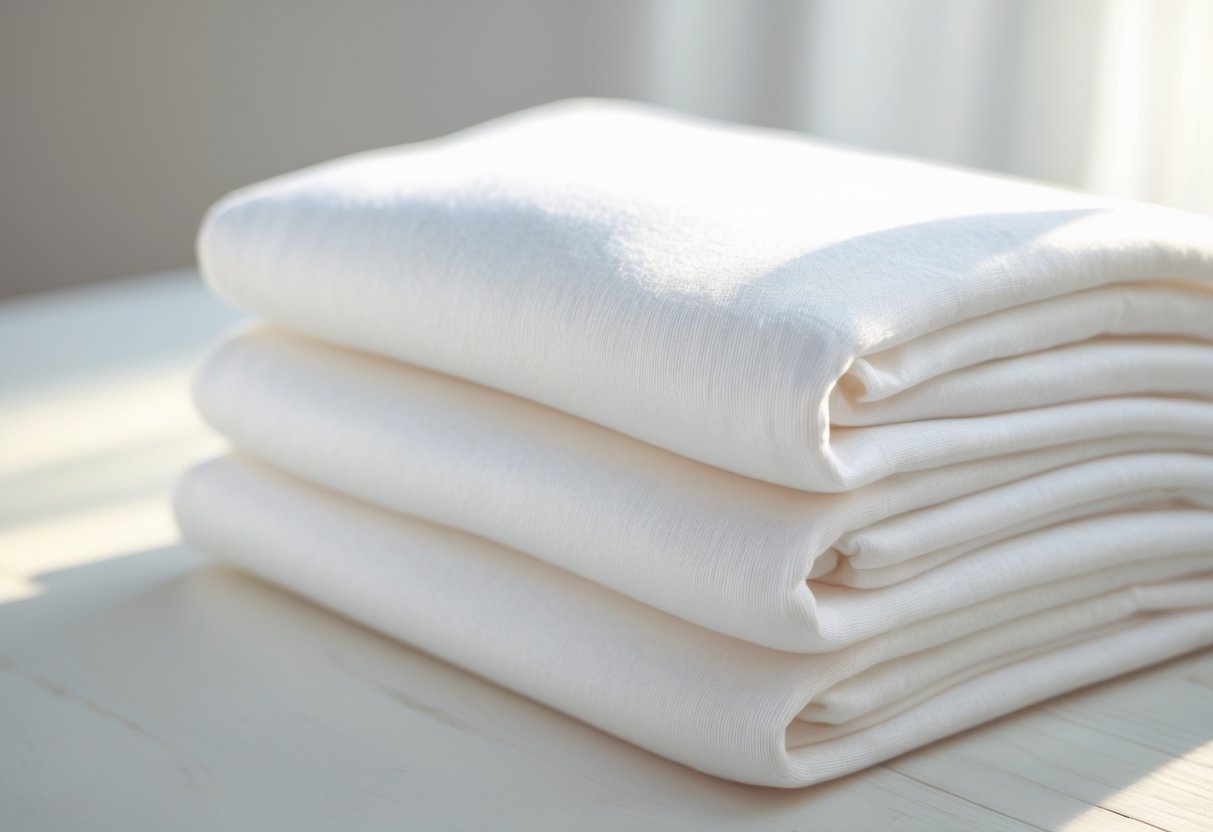
100% combed cotton is a popular choice for t-shirts because it offers a soft and smooth feel. The cotton fibers are carefully combed before spinning, which removes impurities and shorter fibers. This process results in a finer, stronger fabric.
The fabric has longer, straighter fibers, which create a smooth surface. This makes it excellent for printing, as designs appear clearer and colors stay true. It also reduces pilling, helping t-shirts look newer for longer.
Combed cotton is often used in higher-quality and retail t-shirts. It provides comfort while being durable enough for regular wear. Because it is natural, it breathes well and is good for everyday use.
Although 100% combed cotton can sometimes be more expensive, many consider the benefits in softness and print quality worth the cost. It works well with common printing methods like direct-to-garment (DTG) to show detailed designs clearly.
2) Organic Cotton
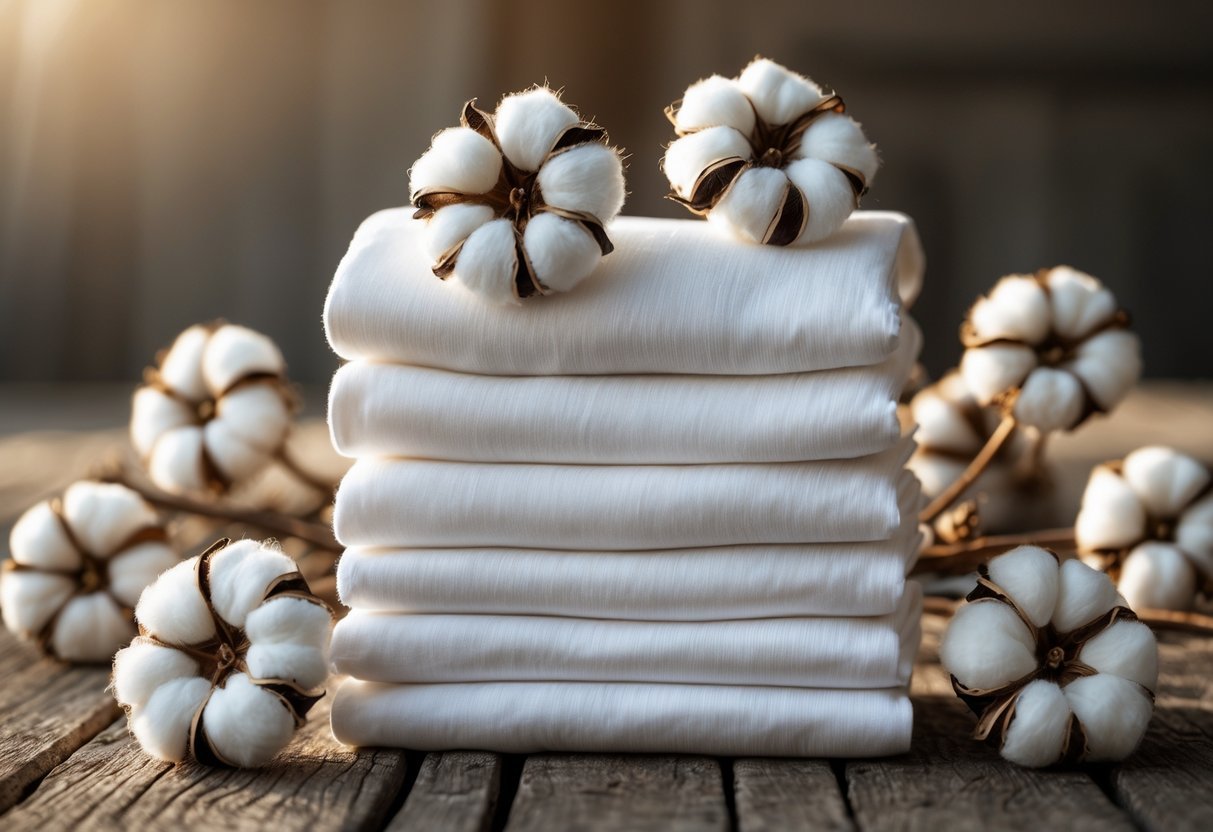
Organic cotton is a popular choice for t-shirts because it is grown without synthetic pesticides or fertilizers. This makes it better for the environment and safer for the farmers who grow it.
The fabric feels soft and breathable, which adds to comfort. Many people prefer organic cotton for its natural texture and durability.
Organic cotton also uses less water compared to conventional cotton. Some brands focus on sustainable farming methods that protect soil health and reduce environmental damage.
While organic cotton t-shirts may cost a bit more, they often last longer. They are less likely to fade or wear out quickly. This makes them a good option for those who want both quality and eco-friendly materials.
Overall, organic cotton balances comfort, sustainability, and performance. It suits people who care about how their clothes are made and how they feel during wear.
3) Polyester
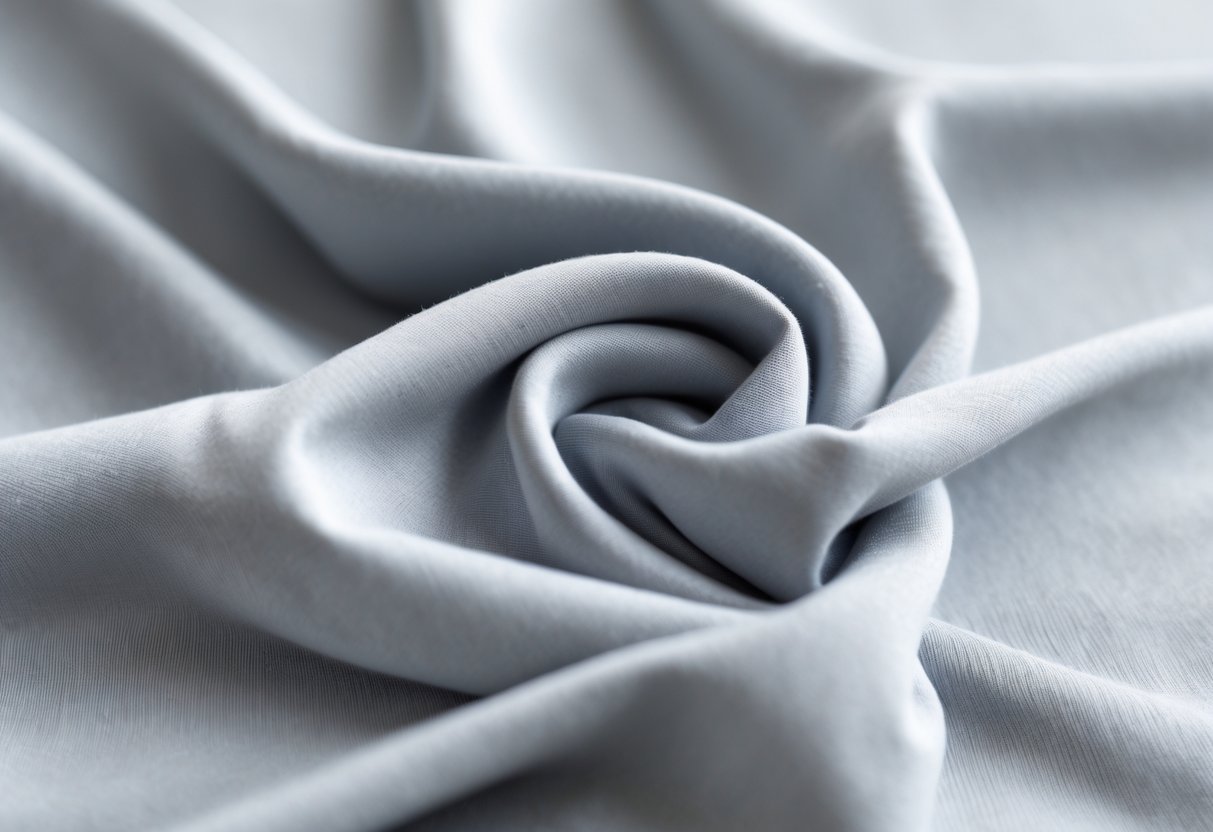
Polyester is a synthetic fabric widely used for making t-shirts. It is known for its strength and durability, which helps garments last longer.
This fabric resists shrinking and wrinkles, making it easy to care for. It dries quickly and holds color well, keeping t-shirts looking vibrant after many washes.
Polyester is less breathable than natural fibers but offers good moisture-wicking properties. This makes it popular for sportswear and activewear, as it helps keep the wearer dry.
It can feel smooth or slightly shiny, depending on the weave. Polyester is often blended with cotton to combine comfort and durability.
Because of its easy maintenance and resilience, polyester is a practical choice for many t-shirt uses. It is also favored in manufacturing for its cost-effectiveness.
4) Tri-Blend (Cotton/Polyester/Rayon)
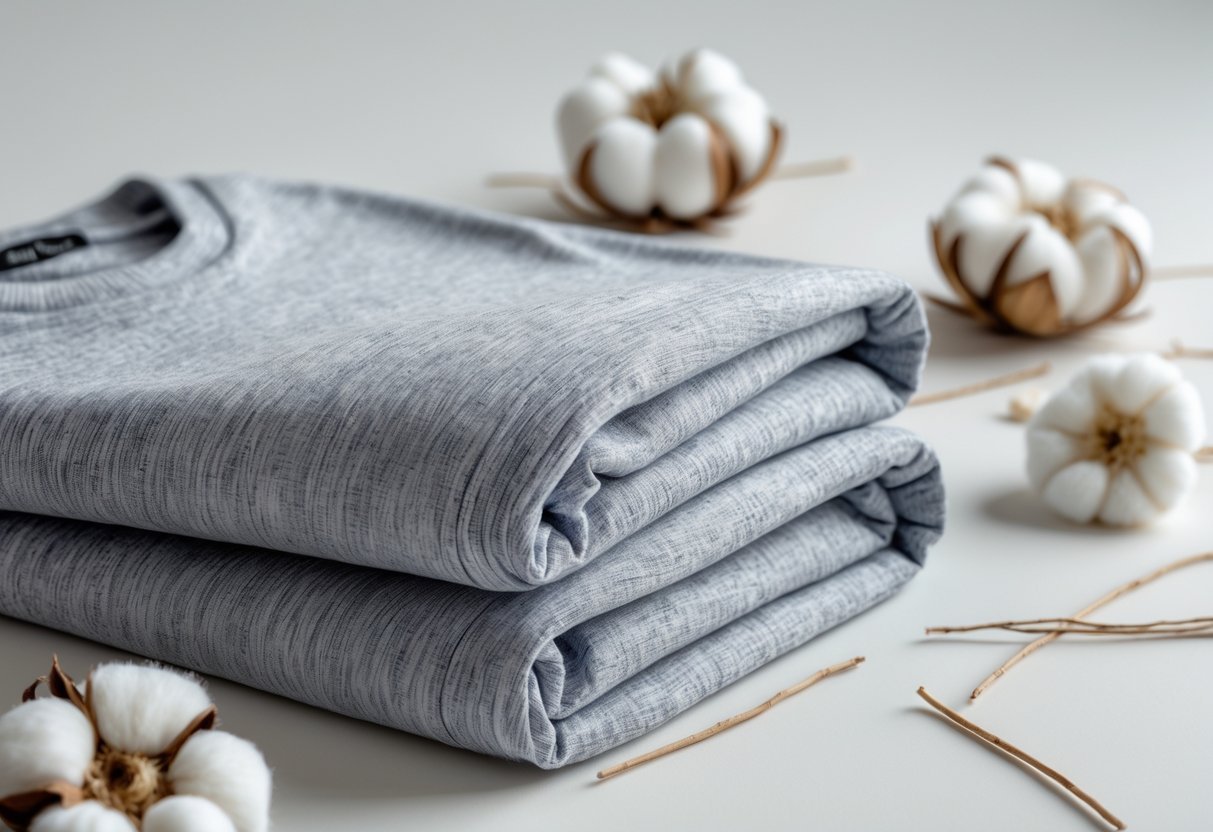
Tri-blend fabric is made by mixing cotton, polyester, and rayon, usually in a 50/25/25 ratio. This mix gives the shirt a soft feel while keeping it strong and stretchy.
Cotton adds breathability and comfort. Polyester helps the shirt last longer and manages moisture well. Rayon gives the fabric a smooth texture and a slight shine, making it look vintage or worn-in.
Shirts made from tri-blend fabric drape nicely on the body. They are lightweight and feel soft against the skin. This fabric is often chosen for those who want a mix of comfort, durability, and style.
Tri-blend shirts tend to have a slightly heathered look. This appearance adds to their appeal for casual and athletic wear. They are less likely to wrinkle and maintain their shape through many washes.
This fabric blend suits people who want a versatile shirt for everyday use. It balances softness, strength, and breathability better than many single-material shirts.
5) Bamboo Fabric
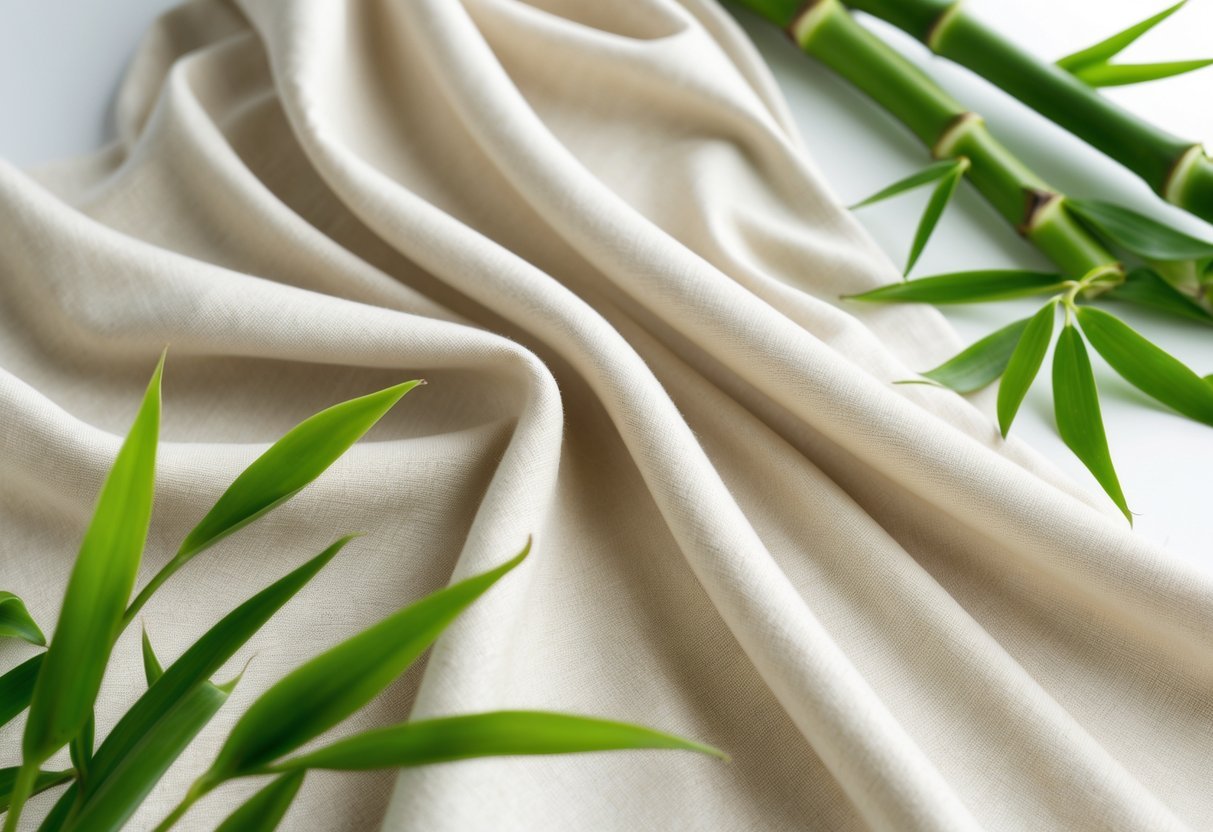
Bamboo fabric is made from the fibers of the bamboo plant. It is known for being soft and smooth, often compared to silk or cotton. This makes it comfortable to wear as a t-shirt material.
It is naturally hypoallergenic and moisture-wicking. This means bamboo fabric can help keep the skin dry and reduce irritation. These qualities make it a good choice for people with sensitive skin.
Bamboo fabric is also breathable. It allows air to flow, which helps keep the body cool in warm weather. At the same time, it has some insulating properties for cooler days.
Many consider bamboo to be eco-friendly because bamboo plants grow quickly and need less water than cotton. However, the processing methods can vary and affect how sustainable the fabric truly is.
Bamboo is often blended with other fibers like cotton to improve durability and shrink resistance. This blend is common in everyday t-shirts that need to be both soft and long-lasting.
6) Linen
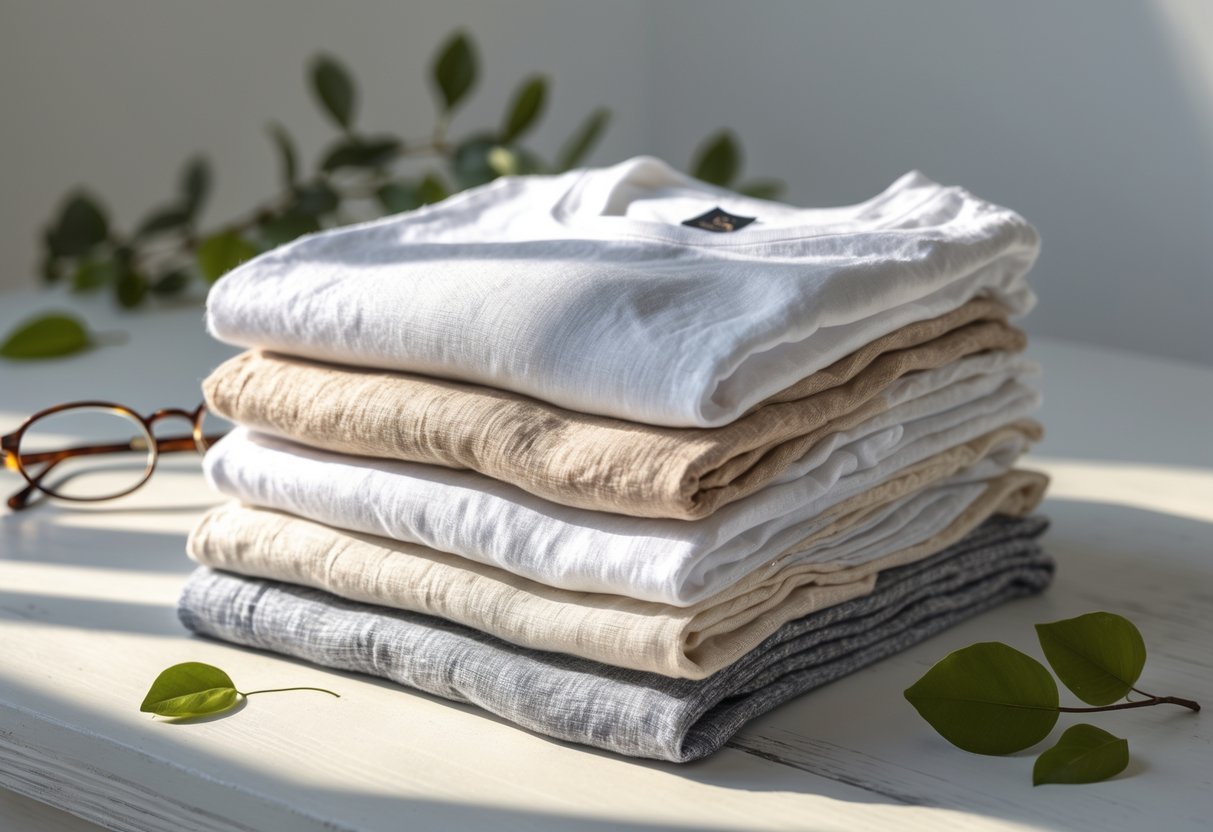
Linen is a natural fabric made from flax fibers. It is known for its breathability and lightweight feel. These qualities make linen a popular choice for t-shirts, especially in warm weather.
It has a unique texture that feels cool against the skin. Linen also dries faster than cotton, which helps keep the wearer comfortable during hot days.
Linen t-shirts can be more prone to wrinkles compared to other fabrics. However, many people appreciate the relaxed, natural look this gives.
While pure linen offers great breathability, linen blends with cotton or polyester can add durability. These blends often reduce wrinkles while keeping the fabric soft and comfortable.
Linen is suitable for those who want a breathable fabric with a natural feel. It may not be the best choice for heavy physical activity due to its lighter weight and lower stretch.
7) Modal
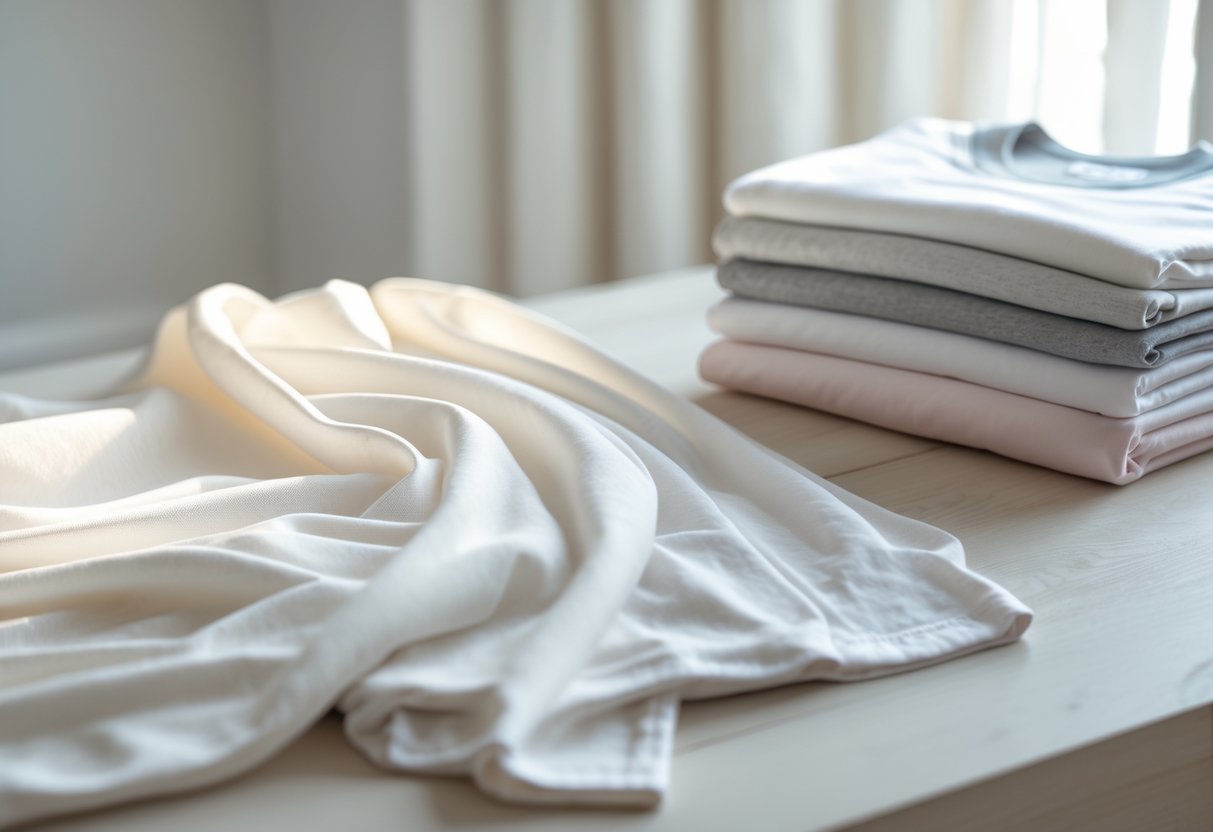
Modal is a type of fabric made from beech tree fibers. It is known for being soft and smooth, which makes it very comfortable to wear. People often choose modal for t-shirts when they want a fabric that feels gentle on the skin.
This fabric has good breathability and moisture-wicking properties. It helps keep the wearer cool and dry during warm weather or physical activity. Modal also drapes well, giving t-shirts a nice flow and shape.
Modal is more durable than regular rayon but can be less durable compared to cotton blends. It resists shrinking and fading, which helps t-shirts keep their look after many washes.
Many prefer modal for fashion or luxury t-shirts because of its softness and elegant appearance. It is also often blended with cotton or spandex to improve stretch and fit while maintaining comfort.
8) Supima Cotton
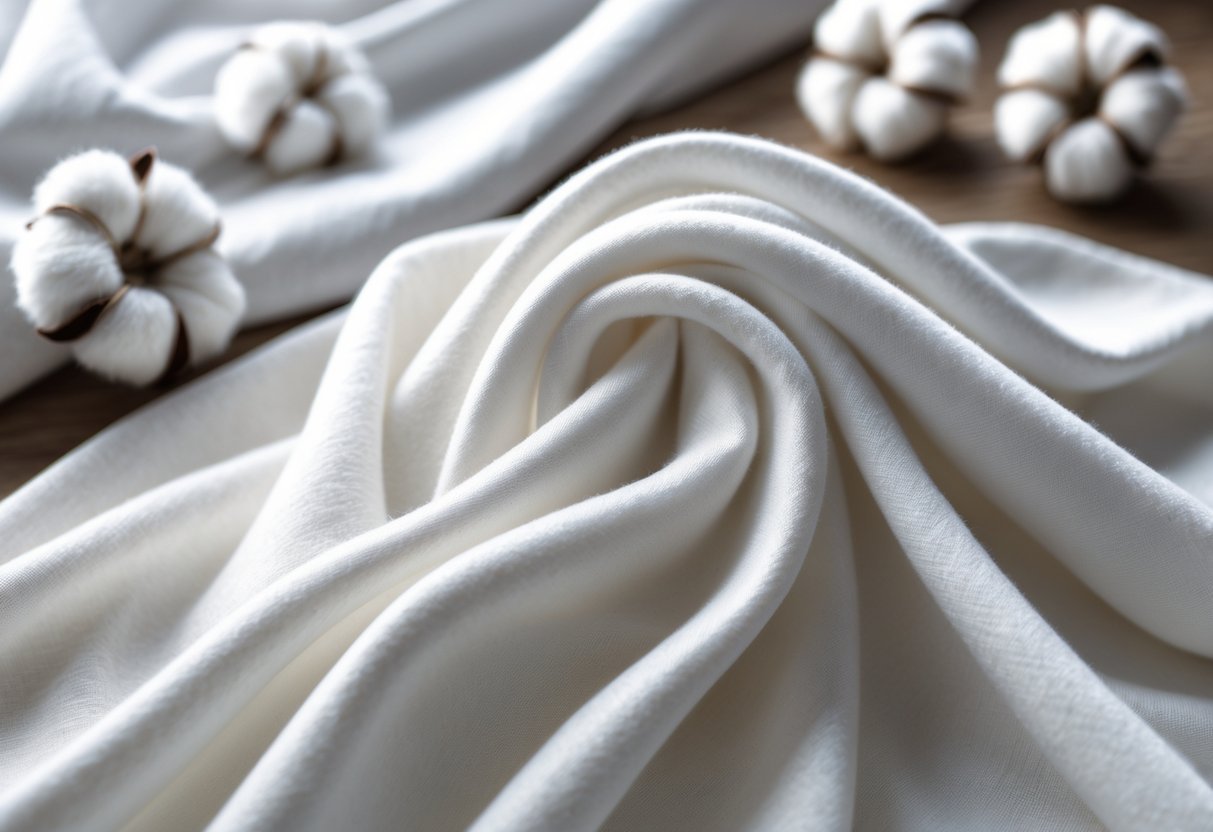
Supima cotton is a type of high-quality cotton grown in the United States. It is known for its extra-long fibers, which make the fabric softer and stronger than regular cotton.
The longer fibers help reduce pilling and increase durability. This makes Supima cotton a good choice for t-shirts that last through many washes without losing comfort.
It also feels smooth and luxurious on the skin. Many premium brands use Supima cotton for its softness and natural breathability, making it suitable for both warm and cool weather.
Supima cotton is often used in casual wear because it stretches a little and holds its shape well. Its quality comes with a higher price, but it offers good value for those who want a durable and comfortable t-shirt fabric.
9) Pima Cotton
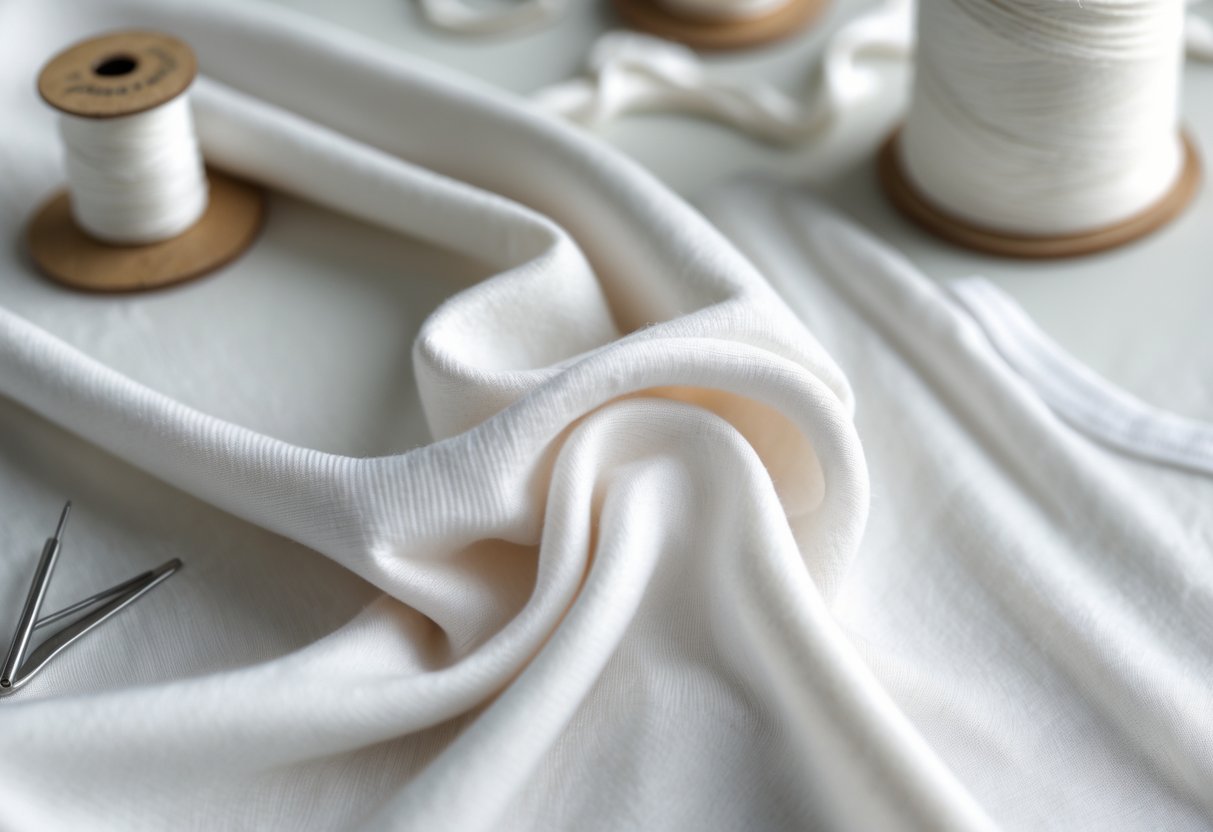
Pima cotton is known for its high quality and durability. Its fibers are longer than regular cotton, which makes fabric softer and stronger. This fabric is often used in premium T-shirts for its smooth feel and lasting wear.
It resists fading, tearing, and wrinkling better than many other cotton types. Pima cotton also keeps its color and shape well after washing.
Because it is breathable and lightweight, Pima cotton is comfortable to wear in warm weather. Its softness makes it a popular choice for those who want a T-shirt that feels gentle on the skin.
Pima cotton is more expensive than regular cotton due to its limited supply and superior qualities. Despite the higher cost, it is valued for its combination of comfort, durability, and luxury.
10) Recycled Polyester
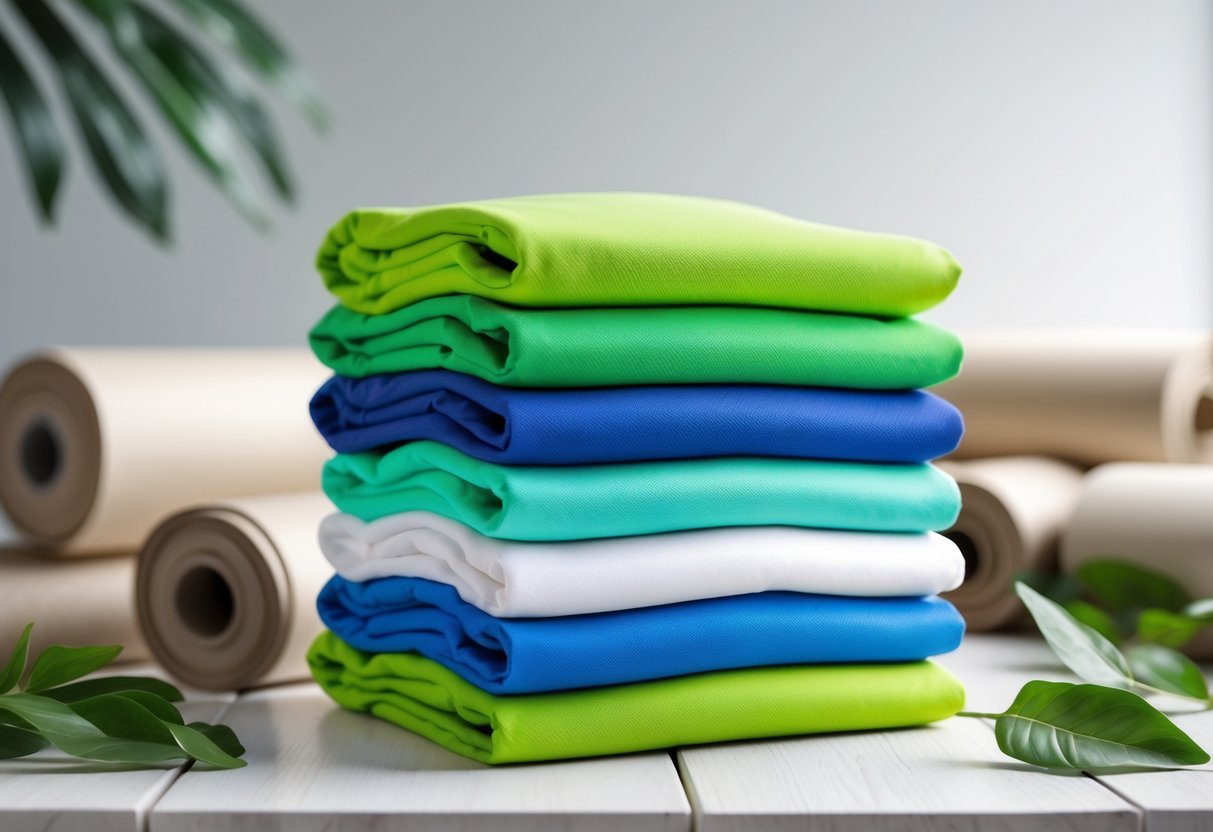
Recycled polyester is made by turning used plastic bottles and old polyester fabrics into new fibers. This process reduces waste and cuts down on the need for new raw materials.
It is strong and durable, making it suitable for everyday wear. Many brands choose recycled polyester for its ability to hold shape and resist wrinkles.
This fabric also dries quickly and is lightweight, which adds to comfort during hot weather or physical activities. However, it does not breathe as well as natural fibers like cotton.
Recycled polyester uses fewer resources and pollutes less water during production compared to virgin polyester. This helps lower its environmental impact.
While it is synthetic, recycled polyester supports reducing plastic waste and promoting recycling. It fits well with brands and consumers focused on sustainability and performance.
Factors to Consider When Choosing T-Shirt Fabrics
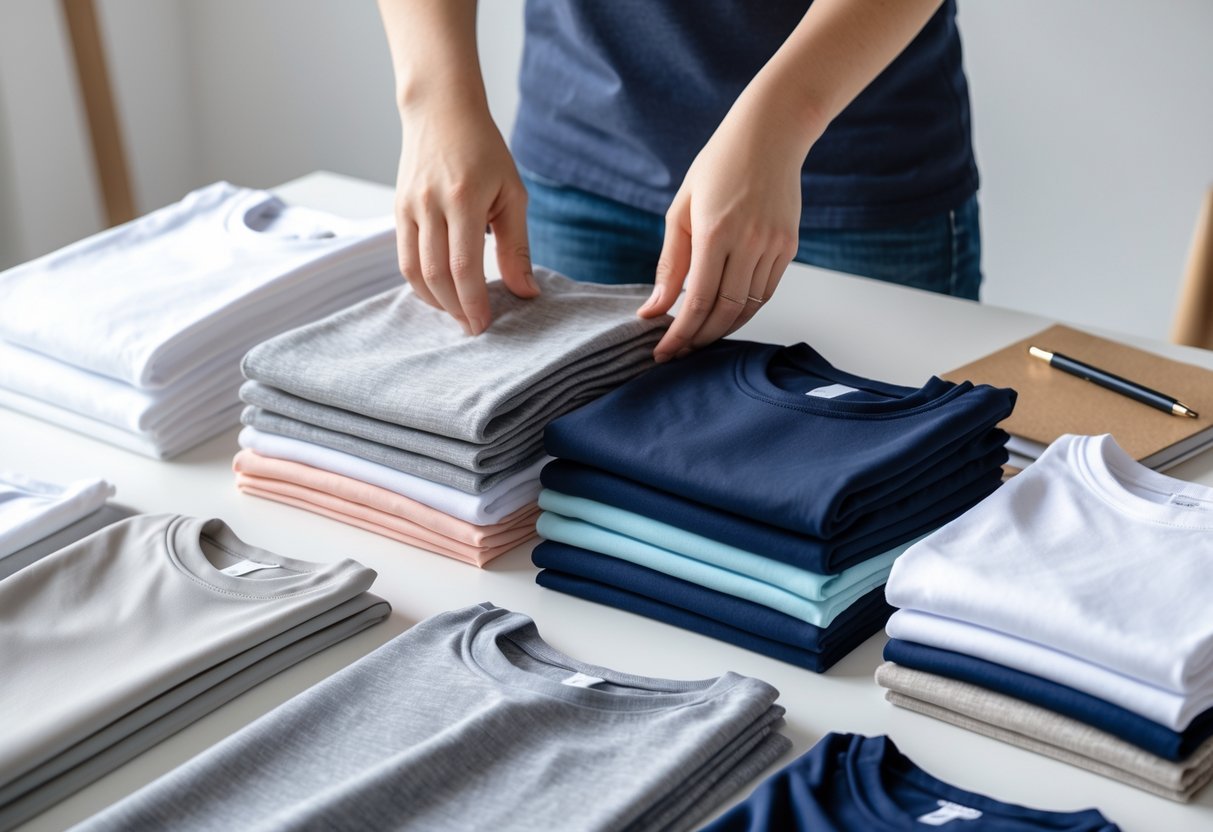
Choosing the best fabric for a T-shirt depends on several important qualities. These include how the fabric feels on the skin, how long it lasts, and how easy it is to maintain. Each of these factors can affect comfort, appearance, and practicality.
Comfort and Breathability
Comfort is one of the top factors when picking T-shirt fabric. Fabrics like cotton are soft and gentle on the skin, making them popular choices. Breathability is also key, especially in warm weather. Breathable fabrics allow air to flow through, helping to keep the wearer cool and dry.
Natural fibers, such as cotton and bamboo, generally provide the best breathability. Synthetic fabrics like polyester may trap heat and moisture, though blends can improve airflow. Softness and moisture-wicking ability also contribute to comfort, particularly for active use.
Durability and Longevity
Durability refers to how well the fabric holds up to wear and washing. Cotton is comfortable but can wear out faster than some synthetics. Fabrics like polyester are strong and resist shrinking, stretching, and fading, making them last longer.
Blended fabrics often offer a good balance of durability and feel. For example, a cotton-polyester blend combines softness with strength. Durability is key for T-shirts that will be worn and washed frequently, especially in active or work environments.
Ease of Care
Ease of care means how simple the fabric is to clean and maintain. Cotton T-shirts are usually easy to wash but may wrinkle or shrink without proper care. Polyester and other synthetic fabrics often resist wrinkles and dry quickly.
Some fabrics require special washing instructions or gentle handling to avoid damage. Fabrics that maintain their shape and color after many washes save time and money. Choosing easy-care fabrics helps keep T-shirts looking good with less effort.
Impact of Fabric Choice on T-Shirt Performance

The type of fabric used in a T-shirt affects how well it handles moisture and how it holds its shape over time. These qualities determine comfort, durability, and how the shirt feels during wear. Different materials offer varied benefits in these areas.
Moisture-Wicking Capabilities
Moisture-wicking fabrics pull sweat away from the skin to the shirt’s outer surface, where it evaporates. This keeps the wearer dry and comfortable, especially during exercise or hot weather.
Polyester and synthetic blends perform best at wicking moisture. They dry quickly and prevent the shirt from clinging to the body. Cotton, while soft and breathable, absorbs sweat and stays wet longer, which can feel heavy and uncomfortable.
Some advanced fabrics combine natural fibers with synthetics. These blends balance the softness of cotton with the moisture control of polyester, making them suitable for both casual and active wear.
Shrinkage and Shape Retention
Shrinking and losing shape are common problems with many T-shirts. Cotton is prone to shrinking, especially when washed in hot water or dried at high heat. This can make the shirt tighter and shorter after a few washes.
Polyester and blends with polyester are better at maintaining their size and shape. They resist stretching and sagging over time. Tri-blends, mixing cotton, polyester, and rayon, offer improved durability and shape retention compared to pure cotton.
Care instructions matter. Gentle washing and air drying reduce shrinkage and help the T-shirt keep its original fit and form longer.
Frequently Asked Questions
T-shirt fabrics vary in durability, comfort, print quality, skin friendliness, breathability, and care needs. Each fabric type offers different advantages based on these factors.
What are the most durable materials used in t-shirt manufacturing?
Polyester is known for its high durability and resistance to shrinking or stretching. Tri-blends also add durability by combining fibers like polyester with cotton and rayon. 100% combed cotton is strong but less resistant to wear than synthetic blends.
How does fabric choice affect the comfort and fit of a t-shirt?
Cotton and organic cotton offer softness and a breathable feel, making them comfortable for most people. Tri-blends provide a stretchy fit and softness, while polyester can feel less natural but holds shape well. Breathability and stretch affect how well a t-shirt fits and feels during wear.
What are the best fabrics for printing custom designs on t-shirts?
100% combed cotton is ideal for printing because it absorbs ink well and shows colors vividly. Tri-blends work for prints but may result in softer, less sharp details. Polyester requires special printing methods but is good for vibrant, durable designs.
Which t-shirt materials are recommended for sensitive skin?
Organic cotton and bamboo fabrics are best for sensitive skin due to their softness and natural fibers. They reduce irritation and are less likely to cause allergic reactions compared to synthetic fabrics like polyester.
What fabrics offer the best breathability for t-shirts in hot weather?
100% combed cotton and organic cotton have excellent breathability. Bamboo fabric also promotes airflow and moisture-wicking, making it suitable for warm climates. Polyester tends to trap heat, making it less comfortable in hot weather.
How do synthetic and natural fibers compare in terms of t-shirt quality and maintenance?
Natural fibers like cotton are soft and breathable but may shrink or wrinkle. Synthetic fibers like polyester resist shrinking and dry quickly but might feel less breathable. Tri-blends combine qualities of both, offering ease of care with improved comfort.


